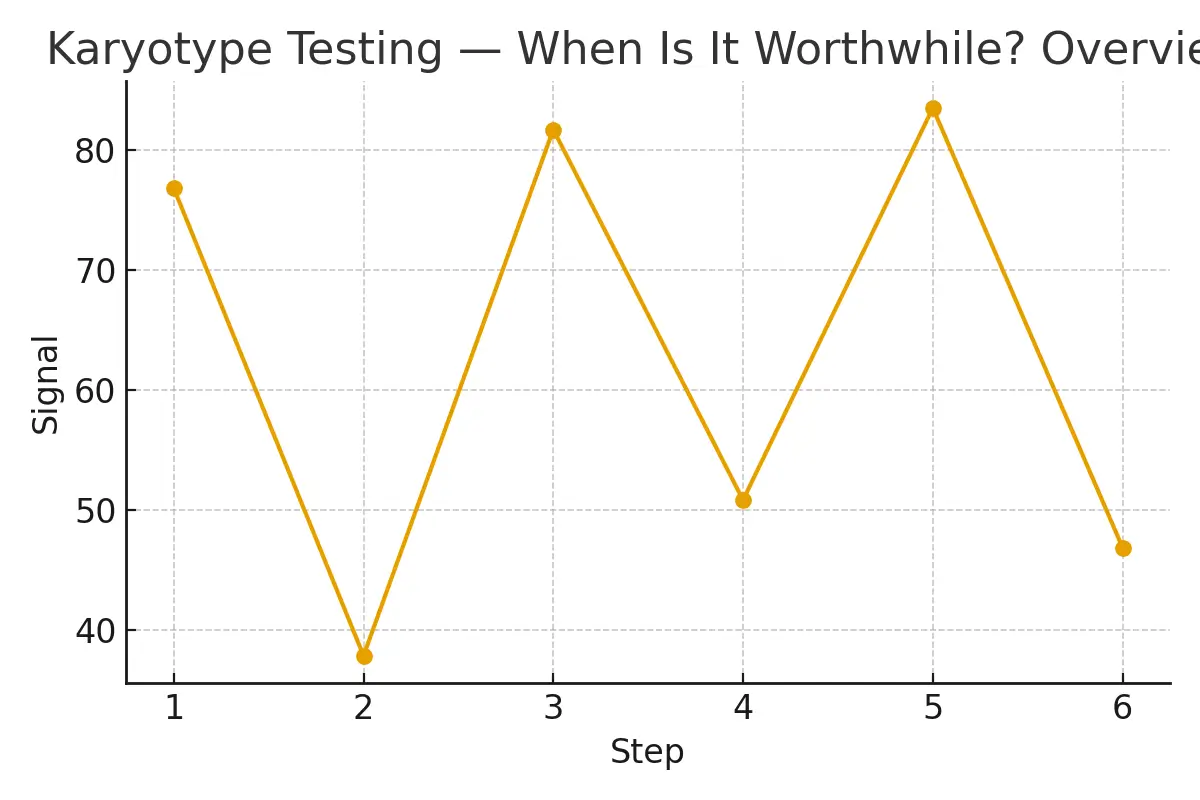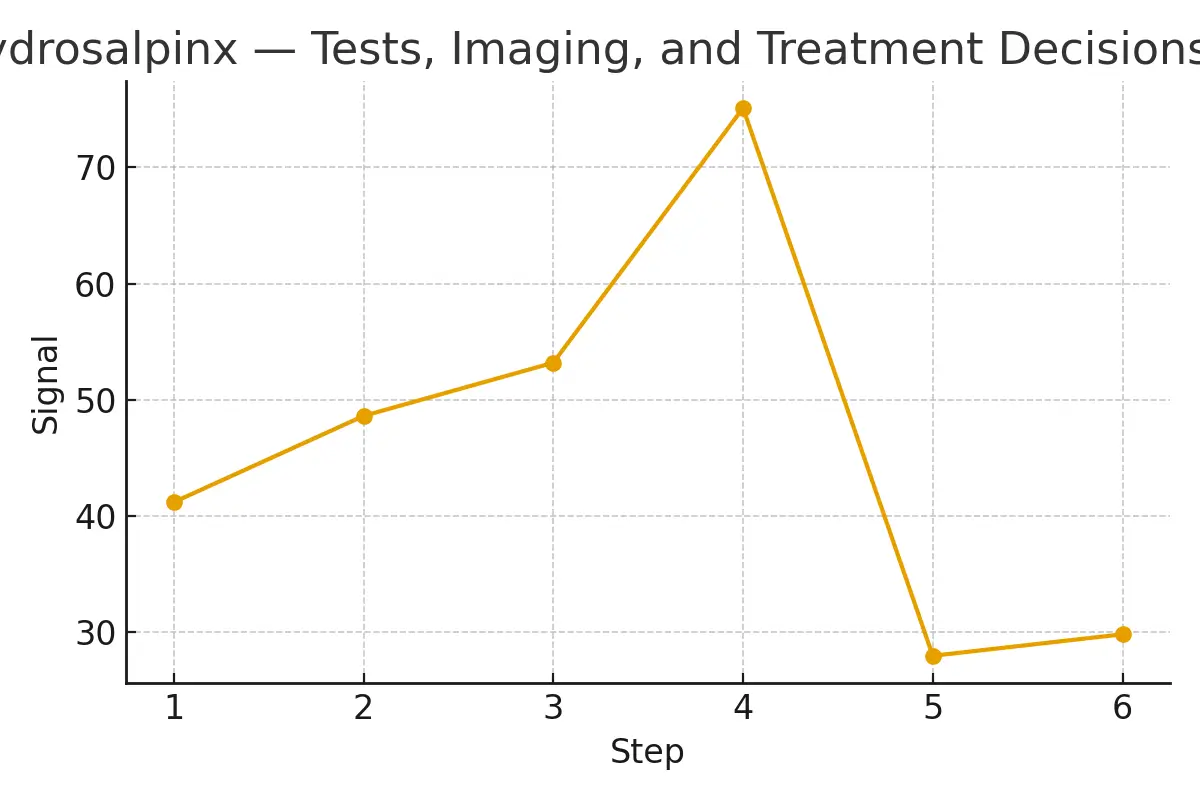
Karyotype testing plays a crucial role in fertility diagnostics, helping identify chromosomal abnormalities that may impact conception and pregnancy outcomes. Within the fertility testing and IVF journey, understanding when karyotype testing is worthwhile can make the difference between confusion and clarity. This guide explains who benefits most, when testing should be done, the cost factors in NYC fertility clinics, and how timing affects overall IVF success rates.
1. What Is Karyotype Testing and Where Does It Fit in the Fertility Journey
A karyotype test analyzes the number and structure of chromosomes in a person’s cells. In fertility care, it’s used to detect genetic causes behind recurrent miscarriages, infertility, or failed IVF cycles.
This test typically fits into the Fertility Testing & Diagnostics phase—before starting or after experiencing repeated failed cycles. It helps specialists create tailored treatment plans that improve embryo quality and success rates.
2. Who Should Consider Karyotype Testing — Eligibility and Red Flags
Not every patient needs a karyotype test, but certain patterns suggest it may be beneficial:
Couples facing two or more miscarriages.
- Failed IVF or ICSI cycles without a clear medical explanation.
- Family history of genetic disorders or chromosomal abnormalities.
- Abnormal embryo development was detected during PGT (Preimplantation Genetic Testing).
- Low sperm count or quality, where genetic factors are suspected.
When to pause or escalate:
If initial tests like hormone levels, AMH, or semen analysis are normal, but outcomes remain poor, your fertility specialist might escalate to karyotype testing to rule out chromosomal causes.
3. Step-by-Step Process with Timing Checkpoints
- Initial Consultation: Your fertility specialist recommends the test after early diagnostics.
- Sample Collection: Blood samples are taken from both partners.
- Laboratory Analysis: Chromosomes are examined under a microscope for abnormalities.
- Results Review (2–3 weeks): Genetic counselor interprets the results.
- Next Steps: Based on findings, the clinic may adjust IVF stimulation, donor selection, or PGT-A testing strategy.
Timing is key — testing before IVF starts prevents delays later and allows smarter use of medication cycles and embryo transfers.
4. Pros, Cons, and Realistic Costs in NYC
Pros:
- Identifies hidden causes of infertility.
- Reduces emotional and financial strain from repeated failed cycles.
- Enables precise IVF or donor matching.
- Improves embryo selection through informed genetic counseling.
Cons:
- May not change treatment for all patients.
- Takes 2–3 weeks for results.
- Not always covered by insurance.
Typical Costs in NYC:
- Karyotype Test: $500
- Genetic Counseling: $150
- Lab Report & Review: $100
Estimated total: ~$750
Understanding these costs upfront helps couples plan financially and emotionally for their fertility journey.
5. Outcome Drivers — What You Control vs What You Monitor
You Control:
- Timely testing and follow-ups.
- Selecting a fertility clinic in NYC with transparent communication and patient-focused care.
- Lifestyle adjustments (nutrition, sleep, and stress).
You Monitor:
- Embryo growth and lab performance.
- Hormonal levels during stimulation.
- Chromosomal results that may influence treatment direction.
6. Questions to Ask Your Clinic
- Do you recommend karyotype testing before IVF or only after failed cycles?
- Will my insurance cover the test?
- How will results change my IVF treatment plan?
- Are there faster testing options available?
- How do you integrate results into embryo screening (PGT-A)?
Patient Case Study
A couple in Manhattan struggled with repeated failed IVF attempts. After undergoing karyotype testing, a mild chromosomal translocation was identified. Their doctor adjusted the approach, incorporating PGT-A testing and synchronized embryo transfer timing. The couple later achieved a successful pregnancy—proof that understanding genetic foundations can bring clarity and confidence to fertility care.
Testimonials
“The steps finally made sense.” — A.&J., Manhattan
“Costs were clear; no surprise bills.” — L., Hoboken
“Nurses replied fast with practical coaching.” — K.&V., Queens
Additional Insights
- Genetic testing enhances embryo competency when lab parameters match biological timing.
- Trigger timing impacts cumulative success and can improve euploid embryo yield.
- Oocyte retrieval optimization reduces variability in success rates.
- Frozen embryo transfer outcomes depend on synchronization between the embryo and the endometrium.
Next Steps with Surrogacy4all NYC
Schedule your free 15-minute nurse consultation to review your fertility results.
- Upload your labs for a second opinion.
- Get a cost breakdown and personalized timeline for your IVF plan.
Visit our website for expert fertility care in NYC. Our integrated testing and diagnostics services, transparent pricing, and compassionate patient journey planning ensure you move forward with clarity and confidence.
Frequently Asked Questions (FAQs)
Q: When should karyotype testing be done in IVF treatment?
Ans. Ideally, before starting IVF, especially after multiple failed cycles or miscarriages, to guide a personalized fertility plan.
Q: Does karyotype testing guarantee IVF success?
Ans. It doesn’t guarantee success but helps identify genetic barriers, improving the odds of success through tailored treatment.
Q: Is karyotype testing expensive in NYC?
Ans. Costs range from $400–$800 per person, depending on the fertility clinic and lab used.
Q: Can abnormal karyotype results still lead to pregnancy?
Ans. Yes, depending on the severity. Your fertility team may suggest PGT-A, donor gametes, or genetic counseling for safer outcomes.
Q: How long do karyotype results take?
Ans. Most labs deliver results within 2–3 weeks, after which your specialist will review treatment adjustments.

Dr. Kulsoom Baloch
Dr. Kulsoom Baloch is a dedicated donor coordinator at Egg Donors, leveraging her extensive background in medicine and public health. She holds an MBBS from Ziauddin University, Pakistan, and an MPH from Hofstra University, New York. With three years of clinical experience at prominent hospitals in Karachi, Pakistan, Dr. Baloch has honed her skills in patient care and medical research.






